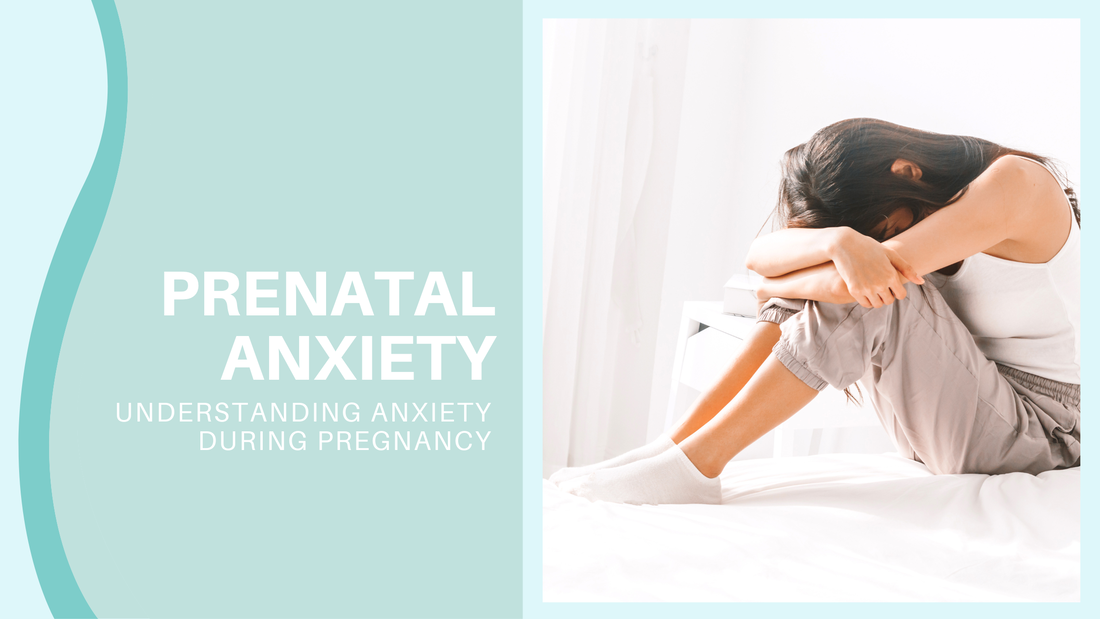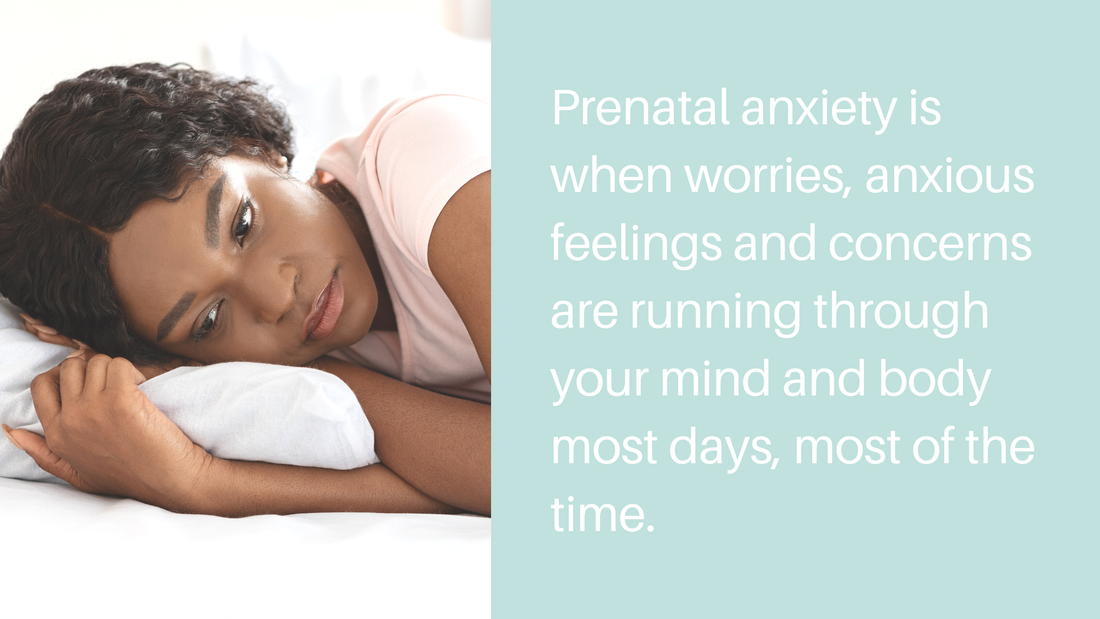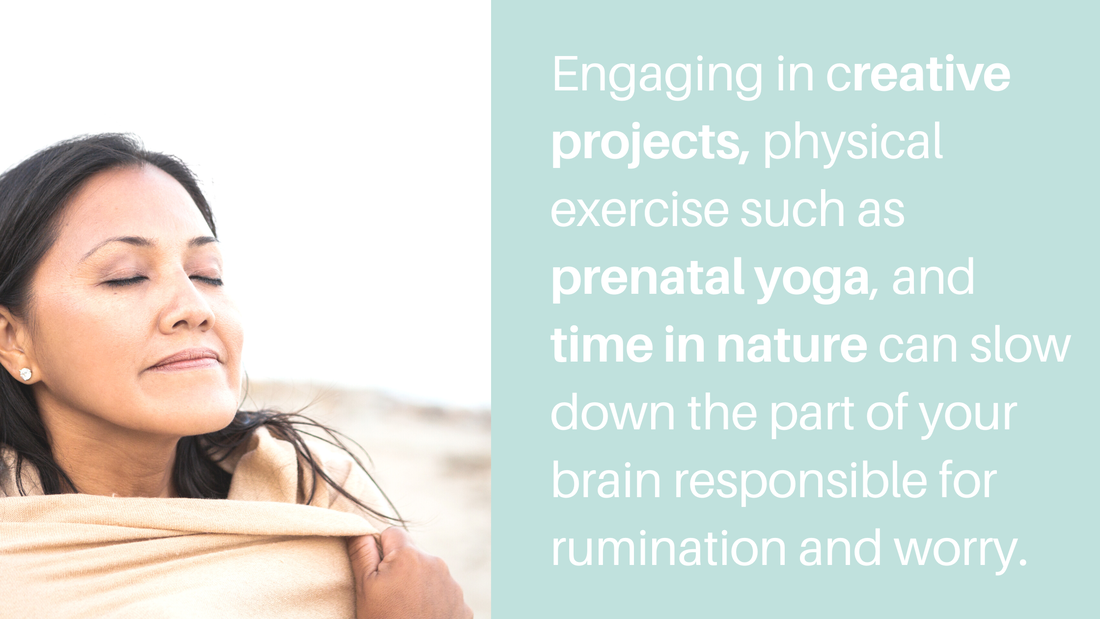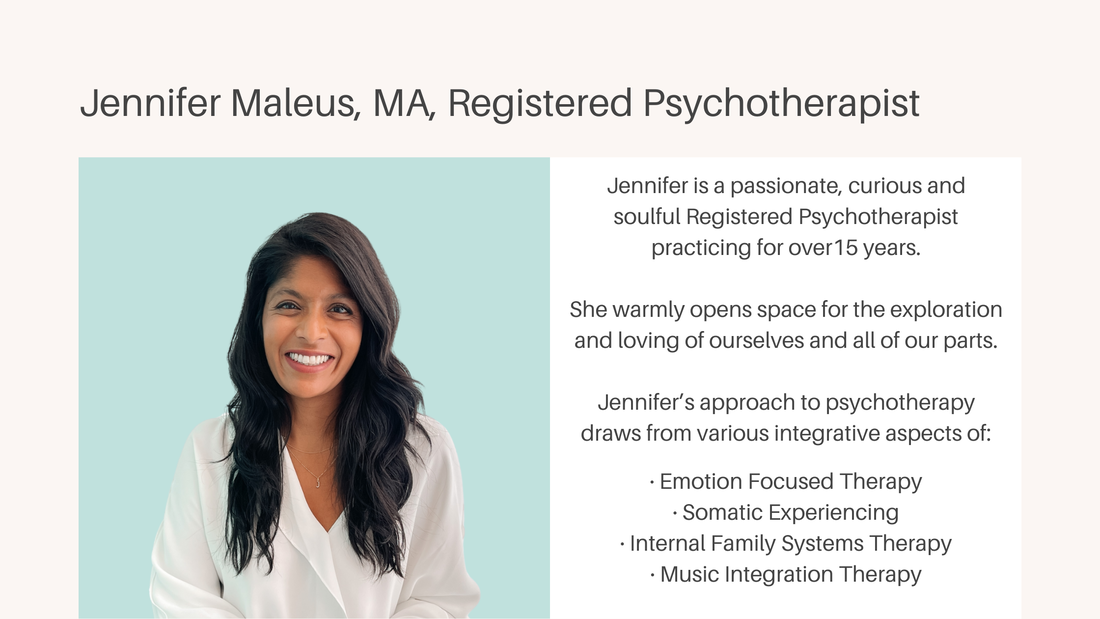|
Written By Jennifer Maleus, MA, Registered Psychotherapist Prenatal anxiety is one of the most common experiences among pregnant and postpartum mamas. However, oftentimes, worries, concerns and anxiousness during pregnancy may be attributed to simply being pregnant. Prenatal anxiety is when worries, anxious feelings and concerns are running through your mind and body most days, most of the time. When a worry related to pregnancy, self, mothering and/or baby doesn’t fade with time, seems like it’s on a loop track in your mind, and feels pervasive, is a strong indication of prenatal anxiety. It is possible and very common to feel both anxious and excited at the same time during the prenatal period. The myth that you are supposed to be happy during pregnancy and beyond is simply that, a myth! Prenatal anxiety is not always simply about feeling anxious – this charge can manifest in irritability, becoming more reactive in your relationship with partner and/or other children, restlessness, feeling on edge, sleep difficulty, and becoming hyper vigilant about your pregnancy, safety and baby’s development. What are some the signs and symptoms of prenatal anxiety?
Of course, many of these symptoms overlap with moving through a pregnancy into the postpartum experience. So, it is really no wonder why many medical health professionals are not aware of treatment options except for providing advice such as “just try and relax before baby arrives” which is not always helpful. Prenatal anxiety effects both mama and baby; infants in utero actually feel their mother’s experience on a cellular level; and this includes feelings associated with prenatal anxiety. Emotional factors and psychological stress make an imprint upon the physiological presentation of an infant as well as later in childhood and may even carry through to adulthood. The stress felt in utero may contribute to pre-term labour, low birth weight and reduced head circumference and may carry forward into life long conditions in your child such as behavioural issues and attention and concentrations problems. Effective strategies for coping with prenatal and perinatal anxiety include journalling about your thoughts and feelings. Releasing your feelings and thoughts from your body and mind may assist you in understanding and gaining clarity about them. Engaging in creative projects, physical exercise such as prenatal yoga, and time in nature can slow down the part of your brain responsible for rumination and worry, and simultaneously, nurture the parts of your brain responsible for eliciting calm and focus. If it’s tough to get started in any of these activities, consider setting a timer for about 30 minutes. Half an hour to slowly walk outside, get lost in a creative project or create a piece of art may not feel too overwhelming and can still evoke a strong benefit in the nervous system. The warmth, support and presence of a Registered Psychotherapist may be just what you and baby need right now. You can trust that you will be fully supported at Yoga Mamas. Our team of experienced psychotherapists hold a wealth of knowledge about the pre and post natal experience and are here to support you through it. We provide counselling support, understanding and reflection about your individual experience. Our team provides both in-clinic and virtual sessions for your convenience and are covered by most benefit plans.
Consider talking to a psychotherapist today, not only to recognize and acknowledge your personal experience, but also to allow someone into it to walk alongside you. Connection empowers us and allows us to feel held and nurtured just when mama and baby need it most. Registered Psychotherapist Jennifer Maleus offers both virtual and in-clinic appointments. Comments are closed.
|
Categories
All
Archives
July 2024
|
-
Wellness Services
- Wellness Concierge
- Abdominal Massage
- Acupuncture
- Cosmetic Acupuncture
- Cesarean Scar Release Therapy
- Chinese Herbal Medicine
- Chiropractic Care
- Counselling >
- Craniosacral Therapy
- Online EFT Tapping
- Fascial Stretch Therapy
- Home Visits
- Online Holistic Nutrition
- Gua Sha Glow Facial
- Introduction to Solids
- Infant & Kids Massage
- Infant Sleep Consulting
- Kinesiology
- Kinesio Taping
- Lactation Consulting
- Light Therapy >
- Lymphatic Drainage Massage
- Massage Therapy
- Naturopathic Medicine
- Osteopathy
- Pelvic Floor Physiotherapy
- Physiotherapy
- Pediatric Physiotherapy
- Online Speech Language Therapy
- Ultrasound For Blocked Ducts
- Vitamin Injections
- FITNESS
- Doula Care
- WORKSHOPS & EVENTS
- Free Events
- Professional Trainings
- Blog
- SHOP ONLINE
Services |
ABOUT US |
|
A Note About yoga Mamas' Cancellation Policies
Please note that we do not offer refunds. Each event/course/training/wellness appt has it's own specific cancellation policy which is listed on each registration page. Please take the time to read these in full prior to registering. Each event/appointment that we run is in partnership with a practitioner who is focusing their independent career in prenatal and postpartum health. This is their beautiful livelihood. This is why we have these policies in place. Thank you very much for your understanding. Jamie Kalynuik, Founder of Yoga Mamas
[email protected] | 416-406-0116 | 1402 Queen St E Suite D. Toronto M4L 1C9
-
Wellness Services
- Wellness Concierge
- Abdominal Massage
- Acupuncture
- Cosmetic Acupuncture
- Cesarean Scar Release Therapy
- Chinese Herbal Medicine
- Chiropractic Care
- Counselling >
- Craniosacral Therapy
- Online EFT Tapping
- Fascial Stretch Therapy
- Home Visits
- Online Holistic Nutrition
- Gua Sha Glow Facial
- Introduction to Solids
- Infant & Kids Massage
- Infant Sleep Consulting
- Kinesiology
- Kinesio Taping
- Lactation Consulting
- Light Therapy >
- Lymphatic Drainage Massage
- Massage Therapy
- Naturopathic Medicine
- Osteopathy
- Pelvic Floor Physiotherapy
- Physiotherapy
- Pediatric Physiotherapy
- Online Speech Language Therapy
- Ultrasound For Blocked Ducts
- Vitamin Injections
- FITNESS
- Doula Care
- WORKSHOPS & EVENTS
- Free Events
- Professional Trainings
- Blog
- SHOP ONLINE






